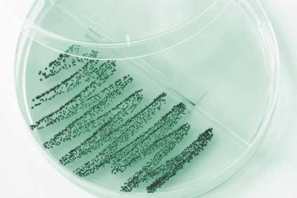EN 13727: Chemical disinfectants and antiseptics – Quantitative suspension test for the evaluation of bactericidal activity in the medical area
EN 13727 is a suspension test designed to measure bactericidal activity of chemical disinfectants and/or antiseptics. This antimicrobial method accounts for realistic conditions, as well as possible interfering substances, in order to mimic the actual application of the product.
This suspension test is designated for products that, when diluted with hard water (or in the case of RTU products, with water), form a homogeneous and stable solution.
EN 13727 is intended for disinfectants and antiseptics used in medical areas including the fields of hygienic handrub and handwash, surgical handrub and handwash, instrument disinfection, and surface disinfection.
The method is designed to determine the effectiveness of formulations or active substances by reflecting the actual conditions of usage. The four fields of product application specify the minimum testing conditions such as test temperature, and test contact time(s). The method also allows for the introduction of interfering substance including “clean” or “dirty” conditions which may influence product performance in practical situations.
Commonly tested microorganisms include:
- Pseudomonas aeruginosa
- Staphylococcus aureus
- Escherichia coli K12
- Enterococcus hirae or Enterococcus faecium
The test sample is introduced into a bacterial suspension in the interfering substance solution following prior product dilution. Maintained at ambient conditions for a defined time interval, the mixture is then neutralized and the number of surviving organisms is measured to calculate bacterial reduction. Such analysis allows to evaluate the bactericidal activity of the tested product.
For quantitative analysis of virucidal activity in the medical area customers commonly request the EN 14476 method.
For more information on antimicrobial product testing, please contact info@situtest.com or (847) 483-9950.

